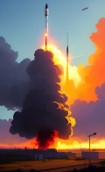(Thread IKs:
fatherboxx)
|
Spiegel wrote an interesting article on some illegal and semi-legal ethnic cleansing methods used in the occupied territories. https://archive.ph/CzTYi quote:Then the Russians sawed off all the locks and moved into my house”
|
|
|
|

|
| # ? Jun 7, 2024 14:27 |
|
Looks like Ukraine is equipping it's sea drone with anti-air missiles now. Here's a video clip from Reddit of a Russian helicopter taking out a Ukrainian sea drone that has a rack for 2 R-73 missiles. It the screen shot that's linked in the thread you can see that one of the missiles had already been fired. https://www.reddit.com/r/CombatFootage/comments/1clh3eb/russian_ka29_helicopter_destroys_a_ukranian_naval/ screenshot: https://www.reddit.com/user/duccyzuccy/comments/1clh75x/r73_air_to_air_missile_on_ukranian_magura_v5/ Mr. Apollo fucked around with this message at 18:41 on May 6, 2024 |
|
|
|
Mr. Apollo posted:Looks like Ukraine is equipping it's sea drone with anti-air missiles now. Interesting. This article was published last month -- I wonder if the author would find this idea is actual more useful to Taiwan than China (given the factors here related to air defense): What Chinese Navy Planners Are Learning from Ukraine's Use of Unmanned Surface Vessels www.rand.org posted:The continued success of Ukrainian unmanned surface vessel (USV) attacks on Russian naval facilities and warships has kept USVs in the defense analytical spotlight and naval analysts around the world, particularly those in China, are taking note.
|
|
|
|
Yeah I'm skeptical of people who claim that the lessons of the Ukraine war and other conflicts just means unequivocally good things for Taiwan's prospects when China has a larger more modern better funded military which is also paying close attention and is taking notes and has repeatedly established a pattern of not only learning from mistakes but learning from observation and doing error correction. I think the fact is with the vastly larger amount of shipping along China's coasts, the greater number of piers/ports for vessels of various sizes, its much more challenging to use drones to target PLAN assets; who likely will have better trained, funded, and protected crews and assets; things like the radar not working because rats chewed the wires and nested in the computers is highly unlikely to be a factor and so on. Not that China doesn't have its own corruption problems but it seems more willing to spend the effort and money in rooting it out.
|
|
|
|
Raenir Salazar posted:Yeah I'm skeptical of people who claim that the lessons of the Ukraine war and other conflicts just means unequivocally good things for Taiwan's prospects when China has a larger more modern better funded military which is also paying close attention and is taking notes and has repeatedly established a pattern of not only learning from mistakes but learning from observation and doing error correction. Also how does a sponsor state keep Taiwan supplied routinely without getting directly involved.
|
|
|
|
DeliciousPatriotism posted:Also how does a sponsor state keep Taiwan supplied routinely without getting directly involved. I'm not sure I understand how this connects to what I said but this hasn't stopped the US from supplying Ukraine. The US can supply Taiwan much the same, via airlift or by sea and dare the PLA to pull the trigger if the US is somehow neutral; which is very unlikely as most scenarios assume the US directly defends Taiwan and immediately commits forces docked in Japan and Guam.
|
|
|
|
Raenir Salazar posted:I'm not sure I understand how this connects to what I said but this hasn't stopped the US from supplying Ukraine. The US can supply Taiwan much the same, via airlift or by sea and dare the PLA to pull the trigger if the US is somehow neutral; which is very unlikely as most scenarios assume the US directly defends Taiwan and immediately commits forces docked in Japan and Guam. Ukraine isn't an island nation that can be easily blockaded like Cuba was during the Cuban missile crisis. And an air and sea blockade is probably one of the first things China would do.
|
|
|
|
https://www.politico.com/news/2024/05/06/russia-us-soldier-south-korea-00156328quote:The soldier, a US staff sergeant who is stationed in South Korea, was arrested last Thursday, said one of the officials, who was granted anonymity to discuss a sensitive incident. The soldier had traveled to Russia to meet a woman, possibly his girlfriend, the official said. Come to Russia to meet your totally real, hot Russian girlfriend. We totally won't arrest you and hold you hostage the moment you step over the border.
|
|
|
|
Charliegrs posted:Ukraine isn't an island nation that can be easily blockaded like Cuba was during the Cuban missile crisis. And an air and sea blockade is probably one of the first things China would do. I don't think this matters much when its the US you're facing.
|
|
|
|
Raenir Salazar posted:I don't think this matters much when its the US you're facing. I disagree. I think it absolutely would matter because it changes the calculus of escalation for all parties involved. Russia can't reasonably blockade Ukraine's western border, but if they could, how far would Europe and the US go to break that blockade? Could the US break a Chinese blockade of Taiwan? Perhaps. But I wouldn't say it's a sure thing. The US Navy is far smaller and older than it once was, and land-based anti-ship missiles have basically brought the concept of coastal artillery back. Consider this: Ukraine, without a navy at all, has managed to secure the Black Sea for its own cargo transport. They've done this by negating the effectiveness of of the Russian Navy. Could Taiwan do the same to PLAN? Again, perhaps, but it's not a sure thing.
|
|
|
|
It's still 11 carrier battle groups..
|
|
|
|
A single carrier group destroyed would be an absolute disaster in loss of life and equipment. A national tragedy in and of itself. Yeeting carrier groups to attrite coastal defenses seems unlikely if it's not in direct defense of the sovereign territory.
|
|
|
|
Dirt5o8 posted:A single carrier group destroyed would be an absolute disaster in loss of life and equipment. A national tragedy in and of itself. Yeeting carrier groups to attrite coastal defenses seems unlikely if it's not in direct defense of the sovereign territory. Agreed, hopefully China doesnt do that vs Taiwans coastal defenses.
|
|
|
|
Black Sea is not a very good point of comparison to Taiwan, as Turkey controls access to the first one and the maritime front has been a sideshow from the beginning and nothing decisive can happen there.
|
|
|
|
Dirt5o8 posted:A single carrier group destroyed would be an absolute disaster in loss of life and equipment. A national tragedy in and of itself. Yeeting carrier groups to attrite coastal defenses seems unlikely if it's not in direct defense of the sovereign territory. A single carrier group being destroyed just means 10 more show up later. This is not a winning strategy unless there's a 2nd Battle of the Atlantic going on at the same time.
|
|
|
|
I do wonder if we're due for a major upset in how naval warfare works. I think most Navies are very much heavily refurbished cold war era affairs with much of the original technology mothballed or no longer in production. I'm reasonably sure there's limited production capability for Mk.48 torpedos for example. Meanwhile the Harpoon missile is very much out of date and yesterday's news. Based on the kind of standoff capabilities the Chinese are building into their navies it sounds like Tomahawks will probably be more relevant in these engagements if they ever happen, but I digress. Pre WW2 it was believed Battleships were the Queens of the sea and that they'd rule any engagement. Then the Japanese came along and decimated the British and American pacific fleets forcing the US to pivot to carriers due to the loss of their battleships. Thereafter, aircraft carriers have been the most valuable and important ships in Naval warfare till the 1990s. Now I'm thinking you could potentially overwhelm a battlegroup with a swarm of drones and hypersonic missiles and even if you can't destroy it, you could potentially reduce its effectiveness or heavily damage it. Perhaps the naval warfare of the 21st century will be cheaper or more drone oriented.
|
|
|
|
Comstar posted:A single carrier group being destroyed just means 10 more show up later. Are you arguing that any US government would willingly make the political choice to sacrifice multiple carrier groups in the defense of Taiwan?
|
|
|
|
BBC reports that SBU claims they have foiled a Zelensky assassination plot and arrested some colonels: https://www.bbc.com/news/world-europe-68968256?at_format=link&at_bbc_team=editorial Those are some high ranking moles.
|
|
|
|
I think assuming that you could destroy one carrier and assume that will result in the US backing down is wild no matter who is in office, and definitely not supported by history.
|
|
|
|
Kraftwerk posted:Pre WW2 it was believed Battleships were the Queens of the sea and that they'd rule any engagement. Then the Japanese came along and decimated the British and American pacific fleets forcing the US to pivot to carriers due to the loss of their battleships. Thereafter, aircraft carriers have been the most valuable and important ships in Naval warfare till the 1990s. This really isn't true. While it wasn't really appreciated just how decisive naval aviation would turn out to be, the US had already decided to pivot to carrier forces, with the Midways authorized and the first tranche laid down before Pearl Harbor ever happened. The British had come to similar conclusions even earlier, and had even carried off a hugely successful carrier raid at Taranto while Pearl was still in the planning phases. They would have invested much more heavily in the fleet air arm as well, except for the part where they were flat broke already.
|
|
|
|
ranbo das posted:I think assuming that you could destroy one carrier and assume that will result in the US backing down is wild no matter who is in office, and definitely not supported by history. I was more assuming that the U.S. would not willingly put a carrier group(s) into such a disadvantaged position with the understanding that they will be used to wear away a defense network tied into an opponents industrial base. Also need to account for anywhere else that may require a carrier group on station. 11 is a massive amount of carrier groups relative to anyone else but the world is a big place and U.S. obligations, alliances and opponents will demand the Navy's attention even if a naval war with China kicked off.
|
|
|
|
ranbo das posted:I think assuming that you could destroy one carrier and assume that will result in the US backing down is wild no matter who is in office, and definitely not supported by history. You make a very good point here. Right now it seems as if the US is exasperated with interventionist conflicts now that Operation IF/EF is over and Afghanistan basically turned into the millennial equivalent of the Vietnam War. But it's important to remember that 1930s America had very popular isolationist politics, had influential figures like Charles Lindbergh directly (or indirectly if you're feeling charitable and agree with his biographer) expressing support for Nazi ideals. History doesn't repeat itself but it kind of rhymes. We live in a world increasingly similar to the 1930s in terms of the zeitgeist. In many ways the war for Ukraine is playing out like the Spanish Civil war. Doesn't mean there's going to be a WW3 or anything, not what I'm suggesting. Just that America was very isolationist and very much indifferent to the plight of the people who were oppressed by the Nazis and Japanese right up until they weren't. It only took Pearl Harbor and we were off to the races. PittTheElder posted:This really isn't true. While it wasn't really appreciated just how decisive naval aviation would turn out to be, the US had already decided to pivot to carrier forces, with the Midways authorized and the first tranche laid down before Pearl Harbor ever happened. Yeah I think I put too much significance on attitudes in the 1920s that led to Billy Mitchell being court-martialed for longer than I needed to. Kraftwerk fucked around with this message at 17:13 on May 7, 2024 |
|
|
|
Kraftwerk posted:I do wonder if we're due for a major upset in how naval warfare works. I think most Navies are very much heavily refurbished cold war era affairs with much of the original technology mothballed or no longer in production. Reuters just did an article yesterday to that effect. It's drones, and the USN isn't ready. https://www.reuters.com/business/aerospace-defense/sea-drone-warfare-has-arrived-us-is-floundering-2024-05-06/
|
|
|
|
Kraftwerk posted:Yeah I think I put too much significance on attitudes in the 1920s that led to Billy Mitchell being court-martialed for longer than I needed to. The court decision was correct, as if you look at the images not only were those old battleships non-moving targets, they were also loaded in MAME and not on genuine hardware
|
|
|
|
Don't forget by the end of the decade America is also going to have like 8 of the smaller amphibious assault ships which are basically small carriers. They are also planning on a few of them being stocked with nothing but F-35s instead of the usual mix of aircraft types that these carry. https://www.twz.com/20201/the-next-america-class-amphibious-assault-ship-will-almost-be-in-a-class-of-its-own https://www.twz.com/8798/heres-the-usmcs-plan-for-lightning-carriers-brimming-with-f-35bs
|
|
|
|
|
D-Pad posted:Don't forget by the end of the decade America is also going to have like 8 of the smaller amphibious assault ships which are basically small carriers. They are also planning on a few of them being stocked with nothing but F-35s instead of the usual mix of aircraft types that these carry. They'll be lucky if that hunk of junk stays afloat at all. This is who's making them: US Navy inspections of Ingalls-built ships uncovered significant problems, report shows www.defensenews.com - Fri, 09 Oct 2020 posted:WASHINGTON – Navy inspectors found serious technical issues across all three U.S. Navy ship classes being built at Ingalls Shipbuilding in Pascagoula, Mississippi in 2018 and 2019, according to an unclassified report sent to Congress earlier this year.
|
|
|
|
Kraftwerk posted:I do wonder if we're due for a major upset in how naval warfare works. I think most Navies are very much heavily refurbished cold war era affairs with much of the original technology mothballed or no longer in production. European countries, especially the ones with Mediterranean ports, have relatively modern frigate class hulls (FREMM is 2010era, Horizon is 2000era for instance), anything heavier is refurbished Cold War kit. Kraftwerk posted:Now I'm thinking you could potentially overwhelm a battlegroup with a swarm of drones and hypersonic missiles and even if you can't destroy it, you could potentially reduce its effectiveness or heavily damage it. Perhaps the naval warfare of the 21st century will be cheaper or more drone oriented. All of them are kinda hopeless against drone warfare since they don't have much antiair onboard, the otomelara autocannon could do antiair in a pinch with special ammo but it's not their main selling point.
|
|
|
|
ought ten posted:Reuters just did an article yesterday to that effect. It's drones, and the USN isn't ready. https://www.reuters.com/business/aerospace-defense/sea-drone-warfare-has-arrived-us-is-floundering-2024-05-06/ Drones are potent and certainly offer novel threats to American carriers and destroyers, but there’s basically two major issues that have limited their widespread adoption: First is that the technology is iterating so quickly that it’s difficult to commit to any individual drone program. There’s been several drone carrier proposals, but they often end up looking obsolete before they can get their feet under them. It’s a bit like during the beginning of the jet age, where the US would field a bunch of new aircraft and then retire all of them within a decade. That’s difficult to justify, particularly when the mindset is that navy ships should last for 30 years or more. The LCS ships, for example, are not lauded as being forward-thinking drone carriers ahead of their time - they’re seen as wasteful boondoggles. Secondly, the issue is the tyranny of distance. This is particularly a problem in the Pacific Ocean, which is considered the greatest threat axis. Drones, cruise missiles, torpedoes, and other weapons just get swallowed up by the scale of the operational environment. That’s why the US has maintained its focus on aircraft carriers and aerial weapons. The sort of littoral threats being developed in the War in Ukraine have been concerning the US Navy for quite a while at this point, and their general solution has been to stay so far off the coast that they can essentially be out of reach - or at least will force attackers to come out into the open. As such, any American drone or cruise missile program has limited applicability to US doctrine. While these two problems are certainly being worked on, they pose significant hurdles for the development of new American weapons in the near future. Given the geo-political situation, the US will likely wait and see what sort of technologies are successful in the War in Ukraine or are being built by China, Iran, North Korea, etc.
|
|
|
|
Kraftwerk posted:Just that America was very isolationist and very much indifferent to the plight of the people who were oppressed by the Nazis and Japanese right up until they weren't. It only took Pearl Harbor and we were off to the races. Someone correct me if I'm wrong, but given the existing racism in the US, a lot of the racist rhetoric behind isolationism retreated with the isolationism as it became politically suicidal to suggest that perhaps America should not in fact show up to show Japan and Germany what's up. The Nazis even based their race science on a lot of work Americans had done in pursuit of pseudoscience. The racism didn't just go away with the war. Volmarias fucked around with this message at 19:00 on May 7, 2024 |
|
|
|
mawarannahr posted:They'll be lucky if that hunk of junk stays afloat at all. This is who's making them: I can confirm, that shipyard sucks
|
|
|
|
General Dynamics owned shipyards seem to be the least bad ones. I don't know much about NASSCO's track record but BIW and Electric Boat seem much less delay/overrun prone than other US shipyards.
|
|
|
|
Someone should start a whole thread about Taiwan invasion scenario derails in a new thread that I don't follow.
|
|
|
|
WarpedLichen posted:BBC reports that SBU claims they have foiled a Zelensky assassination plot and arrested some colonels: Jesus poo poo.
|
|
|
|
Nitrox posted:Jesus poo poo. Yeah I don't know what to make of it. How do you get that high up in rank while also being easily swayed to commit high treason?
|
|
|
|
I feel like assassinating zelensky would just make him a martyr and galvanize the Ukrainians even more at a time when things are on shaky ground morale wise with Russian advances, failure of western support, debate over lowering conscription age etc. It seems counterproductive because it's not going to knock Ukraine out of the war.
|
|
|
|
|
Charliegrs posted:Yeah I don't know what to make of it. How do you get that high up in rank while also being easily swayed to commit high treason? I imagine money was a factor
|
|
|
|
Charliegrs posted:Yeah I don't know what to make of it. How do you get that high up in rank while also being easily swayed to commit high treason? Corruption.
|
|
|
D-Pad posted:I have been thinking the same thing. I saw that robot dog with the flamethrower on its back the other day and thought about putting a small gun of some sort with a targeting computer on the back of one of those robot dogs and you could have several following around your infantry squad. It wouldn't have much range but I feel like you could design one that would be better than nothing. You'd want to make the gun/computer modular so you could plop it on whatever you wanted like tanks, apcs, your command HQ. Kind of a last line of defense against the small commercial drones coming to drop a grenade on your head. https://www.twz.com/sea/rifle-armed-robot-dogs-now-being-tested-by-marine-special-operators
|
|
|
|
|
Charliegrs posted:Yeah I don't know what to make of it. How do you get that high up in rank while also being easily swayed to commit high treason? Charitably, probably a combination of money, and threatening to reveal the other bribery they did to you which would not be very popular.
|
|
|
|

|
| # ? Jun 7, 2024 14:27 |
|
D-Pad posted:I feel like assassinating zelensky would just make him a martyr and galvanize the Ukrainians even more at a time when things are on shaky ground morale wise with Russian advances, failure of western support, debate over lowering conscription age etc. It seems counterproductive because it's not going to knock Ukraine out of the war. It'd really depend on what context the assassination happens in. If it's just killing him, yeah that won't help Russia much. If it includes a concerted push along the front to capitalize on the chaos, or a coup from inside the military, that's something else.
|
|
|


























 Yes, it's like a lava lamp.
Yes, it's like a lava lamp.












